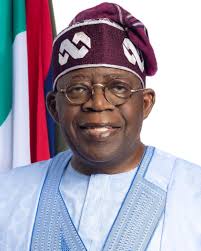Abuja, Nigeria — November 11, 2025
The Nigerian presidency has reiterated its confidence that President Bola Tinubu will soon hold face-to-face talks with U.S. President Donald Trump, despite escalating tensions over Washington’s designation of Nigeria as a “Country of Particular Concern” (CPC) for alleged severe violations of religious freedom.
Speaking on Arise Television’s Prime Time on Monday, Daniel Bwala, Special Adviser to President Tinubu on Media and Policy Communication, said the anticipated bilateral engagement could take place “either at the White House or the State House” and may occur “at any time.”
“In diplomacy, protocol is key,” Bwala stressed. “When you’re building something, it must be preserved and protected. We will not be pressured into revealing the stage we are at in this discussion because there must be respect for protocol.”
His remarks follow a series of high-profile statements from the Trump administration, including an October 31 Truth Social post in which the U.S. leader accused Nigeria of allowing “thousands of Christians” to be killed by “radical Islamists,” citing data from Open Doors estimating over 3,100 faith-based Christian deaths in Nigeria in 2024 alone.
Trump subsequently threatened to halt all U.S. aid and warned of potential military intervention, stating: “If the Nigerian Government continues to allow the killing of Christians, the U.S.A. will immediately stop all aid… and may very well go into that now disgraced country, ‘guns-a-blazing,’ to completely wipe out the Islamic Terrorists.”
In response, President Tinubu issued a statement on November 1 rejecting the characterization of Nigeria as religiously intolerant, emphasizing constitutional guarantees of freedom of worship and inviting U.S. collaboration in combating extremism.
Bwala, in a November 1 statement, highlighted alignment between the two leaders on counterterrorism, noting that the Trump administration had previously authorized significant arms sales to Nigeria—support that the Tinubu government has “adequately utilized” to achieve “massive results” against Boko Haram and the Islamic State West Africa Province (ISWAP).
“Both President @officialABAT and President @realDonaldTrump have shared interest in the fight against insurgency and all forms of terrorism against humanity,” Bwala wrote.
He added that any “perceived differences” regarding the nature of terrorist threats in Nigeria would be clarified during the upcoming leaders’ meeting.
While no official date has been confirmed, unverified reports circulating on social media earlier this month suggested a planned Tinubu visit to Washington in early November—possibly to meet U.S. Vice President JD Vance—may have been postponed, with some claiming Trump demanded Nigeria first address its internal security challenges. The presidency has neither confirmed nor denied these reports.
Analysts say the stakes are high: U.S. aid to Nigeria exceeds $500 million annually, primarily in health, agriculture, and security assistance. A CPC designation could trigger sanctions, including visa restrictions and funding cuts, under the International Religious Freedom Act.
Meanwhile, domestic reactions remain mixed. The Christian Association of Nigeria (CAN) has urged calm, while some civil society groups have criticized the government’s handling of insecurity in the Middle Belt and northern regions, where clashes between herders and farmers—often framed in ethno-religious terms—continue to claim lives.
As diplomatic channels remain active behind closed doors, the anticipated Tinubu-Trump summit is seen as a critical opportunity to de-escalate rhetoric, reaffirm security cooperation, and address mutual concerns over religious freedom and violent extremism.
The presidency has signaled that such high-level engagement will proceed with discretion, prioritizing substance over spectacle in a relationship vital to both nations’ strategic interests in West Africa.

